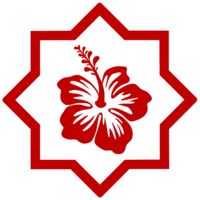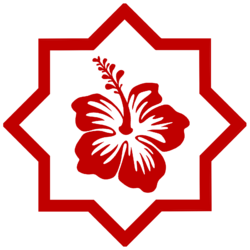Politics of Glanodel: Difference between revisions
Jump to navigation
Jump to search
No edit summary |
|||
| (9 intermediate revisions by the same user not shown) | |||
| Line 1: | Line 1: | ||
{{Template:Politics of Glanodel}} | {{Template:Politics of Glanodel}} | ||
[[Glanodel]], officially the Glanish Commonwealth is a {{wp|federation|federal}} {{wp|republic}} in which the president, Congress, and courts share powers reserved to the federal government according to its [[Constitution of the Glanish Commonwealth|Constitution]]. At the same time, the federal government shares {{wp|sovereignty}} with the cantonal governments. | <!--[[Glanodel]], officially the Glanish Commonwealth is a {{wp|federation|federal}} {{wp|republic}} in which the president, Congress, and courts share powers reserved to the federal government according to its [[Constitution of the Glanish Commonwealth|Constitution]]. At the same time, the federal government shares {{wp|sovereignty}} with the cantonal governments. | ||
The Glanish political system differs from that of most developed democracies in a variety of ways. Perhaps the three most notable being the {{wp|executive (government)|executive branch's}} formal separation from the legislature, greater powers exercised by the legislature's {{wp|upper house}}, and the extent of influence over the application of law expressed by the {{wp|judiciary}}. The executive branch is led by the President and their {{wp|cabinet (government)|cabinet}}, composed of the various heads of the executive agencies and departments. {{wp|legislature|Legislative power}} is vested in the {{wp|bicameralism|two chambers}} of the [[Congress of the Commonwealth]] (''Kongres Glanodæl''; unofficially referred to as the ''Landsmót'', tr. Landsmeet), the Council of State (''Senatet''; {{wp|upper house}}) and the National Council (''Nationalråd'', {{wp|lower house}}). The federal judiciary is composed of the Supreme Court and lower federal courts, and function as the {{wp|judicial review|interpreters}} of the Constitution and federal laws and regulations. This includes resolving disputes between the executive and legislative branches. The federal government's layout is explained in the Constitution. | The Glanish political system differs from that of most developed democracies in a variety of ways. Perhaps the three most notable being the {{wp|executive (government)|executive branch's}} formal separation from the legislature, greater powers exercised by the legislature's {{wp|upper house}}, and the extent of influence over the application of law expressed by the {{wp|judiciary}}. The executive branch is led by the President and their {{wp|cabinet (government)|cabinet}}, composed of the various heads of the executive agencies and departments. {{wp|legislature|Legislative power}} is vested in the {{wp|bicameralism|two chambers}} of the [[Congress of the Commonwealth]] (''Kongres Glanodæl''; unofficially referred to as the ''Landsmót'', tr. Landsmeet), the Council of State (''Senatet''; {{wp|upper house}}) and the National Council (''Nationalråd'', {{wp|lower house}}). The federal judiciary is composed of the Supreme Court and lower federal courts, and function as the {{wp|judicial review|interpreters}} of the Constitution and federal laws and regulations. This includes resolving disputes between the executive and legislative branches. The federal government's layout is explained in the Constitution. | ||
| Line 10: | Line 10: | ||
==Political culture== | ==Political culture== | ||
[[File:The Statue of Liberty 1.jpg| | [[File:The Statue of Liberty 1.jpg|300px|thumbnail|right|The Statue of Liberty (Frihedsstatuen), erected in 1918, has become one of the most iconic and internationally recognizable symbols of Glanish liberalism.]] | ||
{{wp|Federalism}}, along with a form of {{wp|classical liberalism}}, remains the dominant ideology in Glanodel. Among the core tenets of this ideology are: all citizens have the responsibility to understand and support the government, participate in elections, pay taxes, and perform military service; an opposition to {{Wp|political corruption}}, support for the {{wp|democracy|rule of the people}}, {{wp|equality before the law}}, {{wp|freedom of religion}}, {{wp|freedom of speech}}, and {{wp|freedom of expression}}. | {{wp|Federalism}}, along with a form of {{wp|classical liberalism}}, remains the dominant ideology in Glanodel. Among the core tenets of this ideology are: all citizens have the responsibility to understand and support the government, participate in elections, pay taxes, and perform military service; an opposition to {{Wp|political corruption}}, support for the {{wp|democracy|rule of the people}}, {{wp|equality before the law}}, {{wp|freedom of religion}}, {{wp|freedom of speech}}, and {{wp|freedom of expression}}. | ||
| Line 18: | Line 18: | ||
===Direct democracy=== | ===Direct democracy=== | ||
[[File:Glanodel-Referendum.jpg|250px|thumbnail|right|A photograph taken of Glanish citizens in the streets of Vænholm in 1953 to vote in a referendum over the implementation of a universal health care system.]] | |||
Glanodel features a system of government that is fairly unique, sometimes called half-direct democracy. {{wp|referendum|Referenda}} on the most important laws have been used since the Second Constitution. Amendments to the Constitution or changes to federal laws that have no foundation in the constitution but will remain in force for more than one year must be approved by the majority of both the people and the cantons, a {{wp|double majority}}. The Government and Congress can supplement the proposed amendment with a counter-proposal, and then voters must indicate a preference on the ballot in case both proposals are accepted. | Glanodel features a system of government that is fairly unique, sometimes called half-direct democracy. {{wp|referendum|Referenda}} on the most important laws have been used since the Second Constitution. Amendments to the Constitution or changes to federal laws that have no foundation in the constitution but will remain in force for more than one year must be approved by the majority of both the people and the cantons, a {{wp|double majority}}. The Government and Congress can supplement the proposed amendment with a counter-proposal, and then voters must indicate a preference on the ballot in case both proposals are accepted. | ||
| Line 24: | Line 24: | ||
==Herregard== | ==Herregard== | ||
[[File: | [[File:Stockholms_slott_och_Riksdagshuset_2012_pt.jpg|thumb|center|750px]] | ||
Herregard (Lhedwinic: Herregård) is a small archipelago located just off the coast of the Skjelby peninsula in Vænholm. Along with several local shops, restaurants, and hotels, as well as several commercial and public ports, the island primarily serves as the seat of the Glanish government and includes: the Landsmótbygningen, which houses the offices of the members of Congress and holds the legislature's convening chambers; the Føderalebygning, which serves and the primary headquarters for most cabinet officials, including the President; and the Højesteretbygning, which houses the offices of most federal judges and the supreme court justices, as well as the primary courtrooms used by the federal court system. The islands also include the headquarters of the First Bank of Vænholm, the nation's central bank, as well as the Krigsbygning (literally: "war building"), the main headquarters of the [[Armed Forces of Glanodel|Glanish Armed Forces]]. | Herregard (Lhedwinic: Herregård) is a small archipelago located just off the coast of the Skjelby peninsula in Vænholm. Along with several local shops, restaurants, and hotels, as well as several commercial and public ports, the island primarily serves as the seat of the Glanish government and includes: the Landsmótbygningen, which houses the offices of the members of Congress and holds the legislature's convening chambers; the Føderalebygning, which serves and the primary headquarters for most cabinet officials, including the President; and the Højesteretbygning, which houses the offices of most federal judges and the supreme court justices, as well as the primary courtrooms used by the federal court system. The islands also include the headquarters of the First Bank of Vænholm, the nation's central bank, as well as the Krigsbygning (literally: "war building"), the main headquarters of the [[Armed Forces of Glanodel|Glanish Armed Forces]]. | ||
| Line 170: | Line 170: | ||
===List of Glanish cantons=== | ===List of Glanish cantons=== | ||
{| style="float: | {| style="float: center; border: 0px; margin: 2.6em 0 0 0;" | ||
|- | |- | ||
| valign="top" | [[File:Glanodel-Division.jpg| | | valign="top" | [[File:Glanodel-Division.jpg|thumb|750px]] | ||
|} | |} | ||
{| class="wikitable" | {| class="wikitable" | ||
| Line 258: | Line 258: | ||
==Federal judicial system== | ==Federal judicial system== | ||
[[File: | [[File:The Fuller Court.jpg|350px|right|thumbnail|The Thomsen Court (1933-1978), led by Chief Justice Julius Thomsen, is often viewed as the most experienced supreme court in Glanish history with its members collectively possessing over 600 years of judicial experience.]] | ||
The Glanish Constitution establishes the Supreme Court of Glanodel and authorizes the Congress to establish inferior (i.e., lower) courts as their need shall arise. It also establishes a lifetime tenure for all federal judges and cantons that their compensation may not be diminished during their time in office, and it establishes that all federal judges are to be appointed by the president and confirmed by the Council of States. The nation is subdivided into judicial districts and created federal courts for each district. The Congress retains the power to re-organize or even abolish federal courts lower than the Supreme Court. | The Glanish Constitution establishes the Supreme Court of Glanodel and authorizes the Congress to establish inferior (i.e., lower) courts as their need shall arise. It also establishes a lifetime tenure for all federal judges and cantons that their compensation may not be diminished during their time in office, and it establishes that all federal judges are to be appointed by the president and confirmed by the Council of States. The nation is subdivided into judicial districts and created federal courts for each district. The Congress retains the power to re-organize or even abolish federal courts lower than the Supreme Court. | ||
| Line 267: | Line 267: | ||
The federal Constitution safeguards judicial independence by providing that federal judges shall hold office "during good behavior"; in practice, this usually means they serve until they die, retire, or resign. A judge who commits an offense while in office may be impeached in the same way as the President or other officials of the federal government. Federal judges are appointed by the President, subject to confirmation by the Council of States. | The federal Constitution safeguards judicial independence by providing that federal judges shall hold office "during good behavior"; in practice, this usually means they serve until they die, retire, or resign. A judge who commits an offense while in office may be impeached in the same way as the President or other officials of the federal government. Federal judges are appointed by the President, subject to confirmation by the Council of States. | ||
Many generally, left-leaning, public officials have claimed that Glanish lawmaking operates under a partial {{wp|Kritarchy|kritarchy}}, or rule by the judiciary. This accusation is mostly in reference to the tendency of the Glanish political system to rely more on legal precedents than in the passing of new laws. This tendency is commonly referred to as the ''"simple governance approach"'' and is believed by a narrow majority of the Glanish public (52%) to help prevent the creation of unneeded or overly complicated bureaucracy within the government. | Many generally, left-leaning, public officials have claimed that Glanish lawmaking operates under a partial {{wp|Kritarchy|kritarchy}}, or rule by the judiciary. This accusation is mostly in reference to the tendency of the Glanish political system to rely more on legal precedents than in the passing of new laws. This tendency is commonly referred to as the ''"simple governance approach"'' and is believed by a narrow majority of the Glanish public (52%) to help prevent the creation of unneeded or overly complicated bureaucracy within the government.--> | ||
{{Template:Glanodel}} | {{Template:Glanodel}} | ||
Latest revision as of 21:34, 16 October 2022
 |
|---|
| This article is part of a series on the politics and government of Glanodel |
